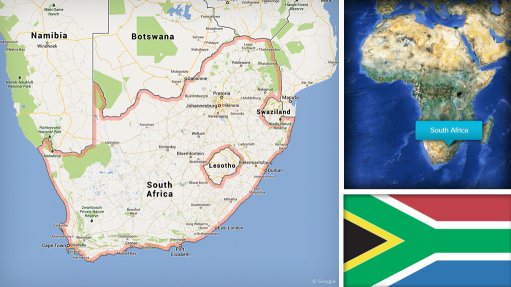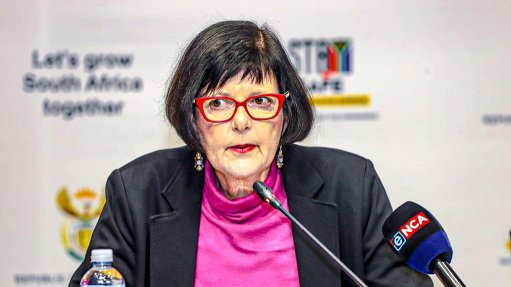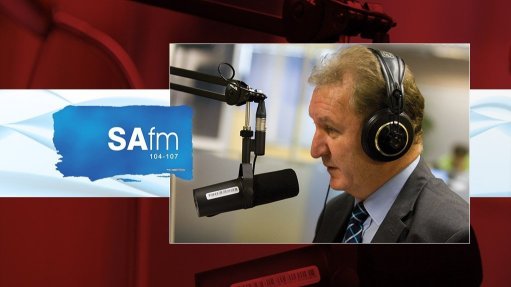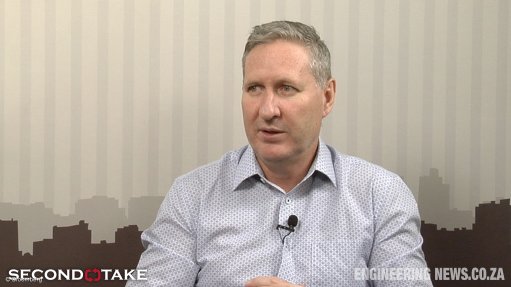Implementation of change in industry increases legitimacy

Greiner Mendi’s Lars Greiner discusses the challenges and future developments of the logistics industry. Camerawork and Editing: Nicholas Boyd.
Amid the challenges faced by the South African logistics industry, materials management and logistics consultancy Greiner Mendi MD Lars Greiner notes that logistics companies should consider change to mitigate inefficiencies in their operations.
He comments that logistics has always been a highly competitive sector, as logistics is involved in all projects, especially procurement strategies commonly used in engineering and mining.
“There are challenges as well as changes occurring in the logistics industry and companies that operate in the industry in South Africa are not on board with the changes globally, resulting in increased inefficiencies.”
Greiner highlights that well-managed logistics gives companies the advantage of being considered to be contracted for projects, but he points out that logistics applied incorrectly will lead to cost overruns and delayed projects.
Some of the challenges in the logistics industry manifest because companies are failing to realise the importance of freight forwarders complying with customer needs, he adds.
In the mining and engineering industries, it is important to ensure that the freight forwarder approached by the company complies with the standards and goals that need to be achieved in a project.
“When awarding a project to a freight forwarder, clients need to check the compliance of the freight forwarder and whether [the company is] undertaking the actual work. This may minimise the risks for the client and the logistics services provider, and also eliminates a noncompliant supply chain,” Greiner explains.
Another challenge is that, very often, in the engineering and fast consumer goods industries, truck space is not being optimised because trucks are not filled to capacity to minimise the amount of trucks used. As a result of this lack of consolidation, Greiner points out, half-full trucks then need to be supplemented with more trucks, which increases costs, as well as the amount of loads transported.
He says the challenge is that the logistics industry is regarded as a costly ‘Dark Art’ which should only be used as a last resort.
“Many companies are still, unfortunately, looking at how they can take advantage of the inefficiencies to make more profit. This is not a long-term sustainable solution,” he states.
Further, Greiner says logistics costs in South Africa are some of the highest in the world partly because there is no barrier to entry and anyone can pass as a logistician.
“The importance of doing proper feasibility studies and planning will assist in selecting a logistics company that meets your needs as a client,” he comments.
He adds that asking for a project history of the logistics company, as well the curricula vitae of the proposed staff, will also reduce risks of noncompliance and serve as evidence that the company is capable of completing projects successfully.
Implementing Changes
Greiner explains that an organisational strategy needs to be implemented to ensure the logistics industry develops. He adds that it needs to be in accordance with companies’ goals to ensure that client requirements are met. He points out that older models can also be improved.
“The industry has to look more carefully towards the future to see where we are headed. There are many logistics companies in South Africa focused on profits rather than minimising inefficiencies, such as reducing costs for clients and looking for more efficient supply chains,” he says.
He asserts that, as a logistics consultant, drawing up options of what a logistics company thinks is best for its clients and their requirements, as well as providing recommendations and managing the selected service providers, contributes to the development of the industry.
Possible implementable changes are moves toward logistics companies that can specialise in and, therefore, operate as experts in a specific trade or industry. This minimises increased costs, damaged property and nonreliability risks. This also makes the industry more credible in supplying services.
Greiner ensures a level of transparency in the plans it provides for clients because it is important for them to see what they are paying for and be assured that the company can deliver.
Comments
Press Office
Announcements
What's On
Subscribe to improve your user experience...
Option 1 (equivalent of R125 a month):
Receive a weekly copy of Creamer Media's Engineering News & Mining Weekly magazine
(print copy for those in South Africa and e-magazine for those outside of South Africa)
Receive daily email newsletters
Access to full search results
Access archive of magazine back copies
Access to Projects in Progress
Access to ONE Research Report of your choice in PDF format
Option 2 (equivalent of R375 a month):
All benefits from Option 1
PLUS
Access to Creamer Media's Research Channel Africa for ALL Research Reports, in PDF format, on various industrial and mining sectors
including Electricity; Water; Energy Transition; Hydrogen; Roads, Rail and Ports; Coal; Gold; Platinum; Battery Metals; etc.
Already a subscriber?
Forgotten your password?
Receive weekly copy of Creamer Media's Engineering News & Mining Weekly magazine (print copy for those in South Africa and e-magazine for those outside of South Africa)
➕
Recieve daily email newsletters
➕
Access to full search results
➕
Access archive of magazine back copies
➕
Access to Projects in Progress
➕
Access to ONE Research Report of your choice in PDF format
RESEARCH CHANNEL AFRICA
R4500 (equivalent of R375 a month)
SUBSCRIBEAll benefits from Option 1
➕
Access to Creamer Media's Research Channel Africa for ALL Research Reports on various industrial and mining sectors, in PDF format, including on:
Electricity
➕
Water
➕
Energy Transition
➕
Hydrogen
➕
Roads, Rail and Ports
➕
Coal
➕
Gold
➕
Platinum
➕
Battery Metals
➕
etc.
Receive all benefits from Option 1 or Option 2 delivered to numerous people at your company
➕
Multiple User names and Passwords for simultaneous log-ins
➕
Intranet integration access to all in your organisation


















